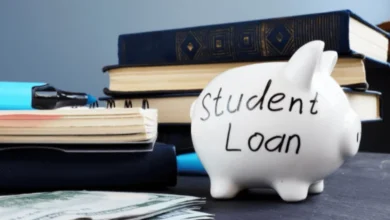Tax Strategies Every Business Owner Should Know for Property Deductions

Every business owner understands that part of success is managing expenses. However, if these do not defer sufficient income, property-related deductions, such as capital allowance, are among the most effective methods of reducing taxable income and improving cash flow. Real estate costs, equipment, and improvements generally have a lot of tax-saving potential. Learn how to utilise these deductions properly to impact your overall tax plan positively.
Understanding Property Deductions
Depending on the kind of property and how it is utilised in the firm, there might be a wide range of deductions. Several methods to reduce your tax burden include using the relevant deductions, regardless of whether you own or lease your company property.
Depreciation and Real Estate Deductions
Depreciation allows you to write off the price of your possession over a defined duration. Regarding commercial real estate, the IRS usually gives a 39-year depreciation lifespan, allowing you to deduct a small portion of the property’s value yearly. This will enable you to offset the cost of ownership better and lower your taxable income.
This deprecation process relates to buildings and improvements to a property. These include renovations, structural updates, and systems. This is why it’s crucial to maintain detailed records of these improvements to claim the maximum depreciation deductions.
Operating Expenses
When running a business from real estate you own, most operating expenses daily are deductible. These could involve property administration costs, utilities, insurance premiums, maintenance, and repairs. You have to differentiate the repairs (which are mainly deductible in the year they’re made) from the improvements (which need to be depreciated over time)
For instance, painting a wall or repairing a clogged roof generally qualifies as repairs (eligible for immediate deductions). But putting in new windows or replacing plumbing would be considered improvements, and so would be depreciated for several years.
Utilising Tax Credits for Property Owners
Business owners should also note potential tax credits to help with property costs. Tax credits differ from deductions because they do not reduce the taxable income but reduce your tax liability directly. If you own commercial properties, there are specifically designed credits to incentivise energy efficiency and sustainability in business.
For example, the Energy Efficient Commercial Building Deduction (Section 179D) enables businesses to deduct expenses of installing energy-saving systems. These may include lighting, heating, air conditioning, and ventilation systems if they meet specific energy-saving standards. By utilising such credits, it is possible to substantially reduce the cost of property upgrades and improvements.
Claiming Capital Allowance on Property Investments
Claiming capital allowances is one of property-investing business owners’ most beneficial tax strategies. This enables businesses to write off the cost of purchasing or improving property over a specific period. Capital allowance deductions could also apply to furniture, machinery and fixtures inside the property, depending on the property type.
This means that by claiming capital allowance on qualifying property investments, you can effectively lower the initial price of these assets. This is especially helpful if your business has invested heavily in new facilities or equipment necessary for operations. You will not miss these valuable allowances if you understand the rules and have the correct documentation.
Qualifying for Capital Allowance
There are specific criteria under which your property is eligible for a capital allowance claim. The property must be used in the company, and all additions and improvements should be capitalised. You’ll want to consult a tax professional to help you determine which of your property assets are eligible for this benefit.
Leasing Property and Deducting Lease Payments
Without owning property but simply leasing commercial space, there are still property-related deductions you can take advantage of. Lease payments are treated as an operating expense on your tax return and may be deducted. Also, the deductibility of additional costs to improve the leased space will depend on the specifics of your lease agreement.
In most instances, leasehold improvements like laying carpeting, installing partitions, or upgrading lighting may be depreciated over the lease term. In a long-term lease, you can usually be repaid by a relatively short payback on improvements, receiving the advantage of ongoing tax savings.
Tax Implications of Selling Property
Business owners must know the inevitable tax consequences when selling a business property, especially regarding capital gains tax. Any profit you realise on the property of sale for more than the depreciated value is generally taxable. But , strategic planning can minimise these taxes.
One common approach is a 1031 exchange, where you defer capital gains taxes when you reinvest the money from the sale of property into the purchase of similar property. While specific rules apply to 1031 exchanges, the strategy is helpful to avoid giant tax bills when selling real estate.
How Property Deductions Impact Your Bottom Line
Property deductions and capital allowance are part of structuring your finances to cut taxes and put your money back into your business. The better you understand them, the better you can act within your budget. Accurately tracking depreciation, capital allowances, and credits decreases taxable income and increases the value of your property over time.
Also, these deductions maximise cash flow, an essential factor for businesses today, particularly those growing or in times of financial difficulty. If planned correctly and with good record keeping, property-related deductions can be an effective strategy to include in your tax planning.
Conclusion
Every business owner must understand property deductions, especially capital allowance claims, and the advantages these can have for your business. New car tax write details different tax deductions that will apply to the business use of the vehicle, ranging from depreciation to credits to write-offs of the leasing of the car.
Property tax strategies can be complex, so working closely with a tax advisor to understand the nuances and ensure you utilise all available deductions is best. Whether you purchase or lease property, these tactics can maximise your deductions and keep your business on a solid financial foundation.
Want more? Find it all at www.wordplop.com.





